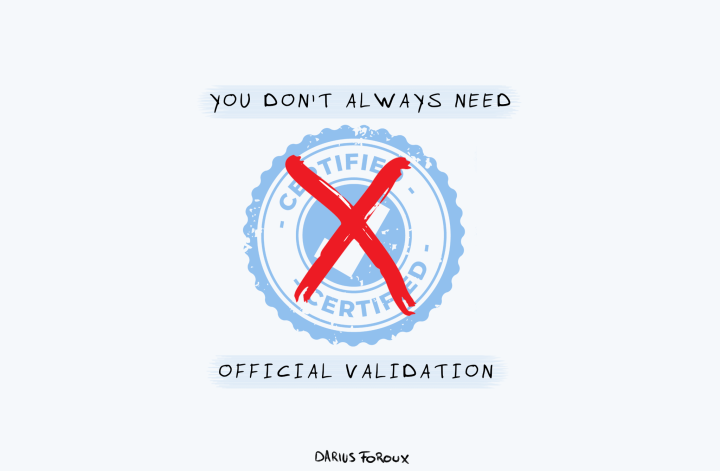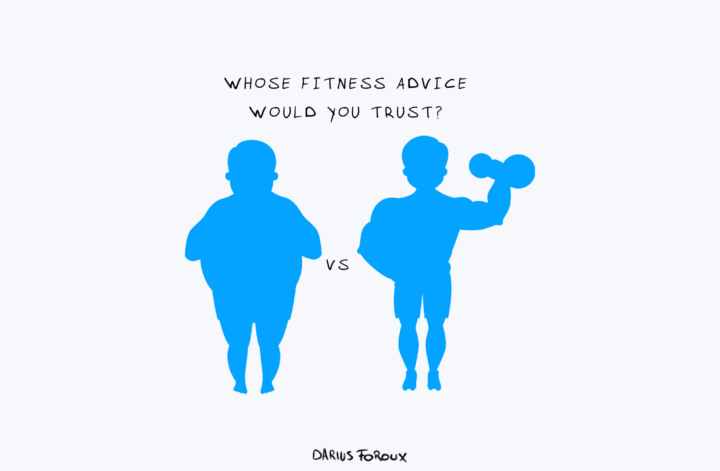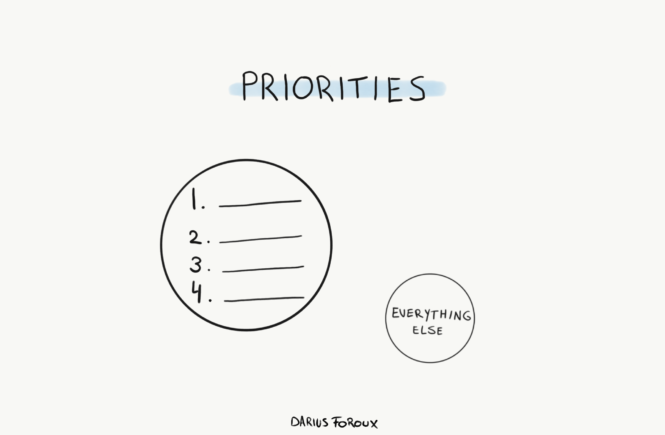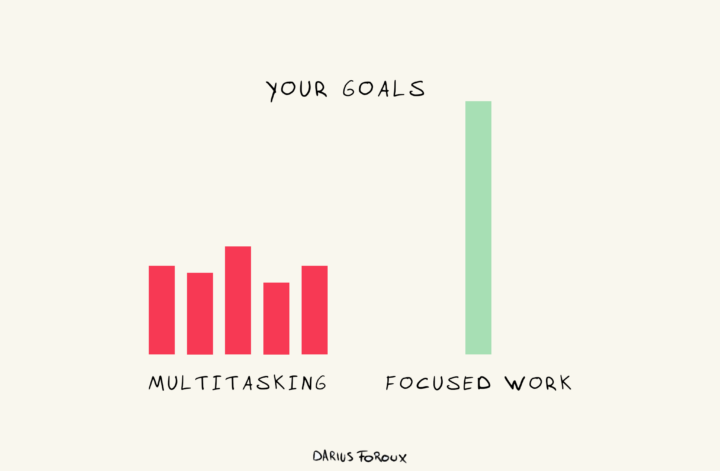How often do we pursue something purely as a means to do something else?
I spoke to a former co-worker of mine who’s now working as a business coach. She has her own practice and own coaching methodology.
But the last time we caught up, a few years ago, she was participating in some kind of coaching accreditation program. Many people assume you need some sign of approval before you can work in a particular profession.
This is certainly true for coaches. But also for authors, consultants, and other expert-level jobs. While I think the system accreditation serves a purpose, it’s not always the best path.
Degrees and certificates function as shortcuts. If someone has a degree from a certain university, you can assume that person has a certain level of academic ability and persistence.
The same is true for financial roles. A certified financial planner in the US has gone through an extensive training program, which doesn’t cost a lot of time, but also money. These types of stamps of approval are helpful.
But the problem arises when we pursue a certain degree and certificate purely as a means to do something else.
”I want to do x, but I need y”
Have you ever said that to yourself? If so, you’re either postponing your goal or you’re trying to find a reason to not pursue it. Here are a few examples:
- I want to write a book but I need a degree
- I want to teach yoga, but I need to be certified
- I want to make a movie, but I need to go to film school
- I want to create want to be a language instructor, but I need a master’s degree
You get the idea. The goal is the first part of the sentence and the means is the second part.
Can I share a secret with you? These are just excuses. Unless your desired profession or goal is regulated, you really don’t need anything.
Too often we have certain conditions in our minds. We think we need to have certain credentials, otherwise, we can’t do something.
When I wrote my first book, I was 28. I could tell that people in my environment didn’t take me entirely seriously. They thought it was just some gimmick.
Now, seven years later, that first book, Win Your Inner Battles, has sold tens of thousands of copies and has been translated into multiple languages. Today, I still get messages from readers who enjoyed that book.
Did I have training as a writer? Was I a psychologist? Did I study philosophy?
No, no, no.
I simply had something to say about conquering fear. I applied some strategies to my own life and I realized they were different from the other books out there.
So I said to myself: I’m going to write this book. I’m not going to wait until someday I might feel like I’m qualified. If it helps people, they will appreciate it. If not, that’s fine. I believe in this material.
What’s your end goal?
What’s the work you want to do? Do you want to coach? Consult? Write? Teach? Design? Create? Program?
Focus on how you can make that happen with the least amount of friction.
You want to make it so easy for yourself to do that thing that you will actually do it. When you think in these types of conditions, terms like, “I need a degree to do” so and so, you create friction.
Maybe you do the thing and you realize it’s not for you. If you just spent several years and a lot of money on the degree, it was a waste of time and money.
Or, maybe you do the thing and realize you love it. Go and get that degree if you want.
There are multiple ways to career success. My goal is to help people become less rigid in their thinking patterns. What matters is that you think things through, all the way to the end.
- You want to get a degree or some kind of certificate?
- Why?
- So you can do what?
- And what will happen when you have it?
- How can you use it?
- What will your life look like?
Just a few questions you can ask yourself.
Remember that you can never get back the time you spend. You want to ensure that every significant endeavor you start is worth it.
Sure, you can never know fully in advance whether something will be useful or not. Some things we must try to figure out. But you don’t need validation to start.
So if there’s something you want to do and you’re waiting until you’re “qualified” or “good enough,” why not just start now?




